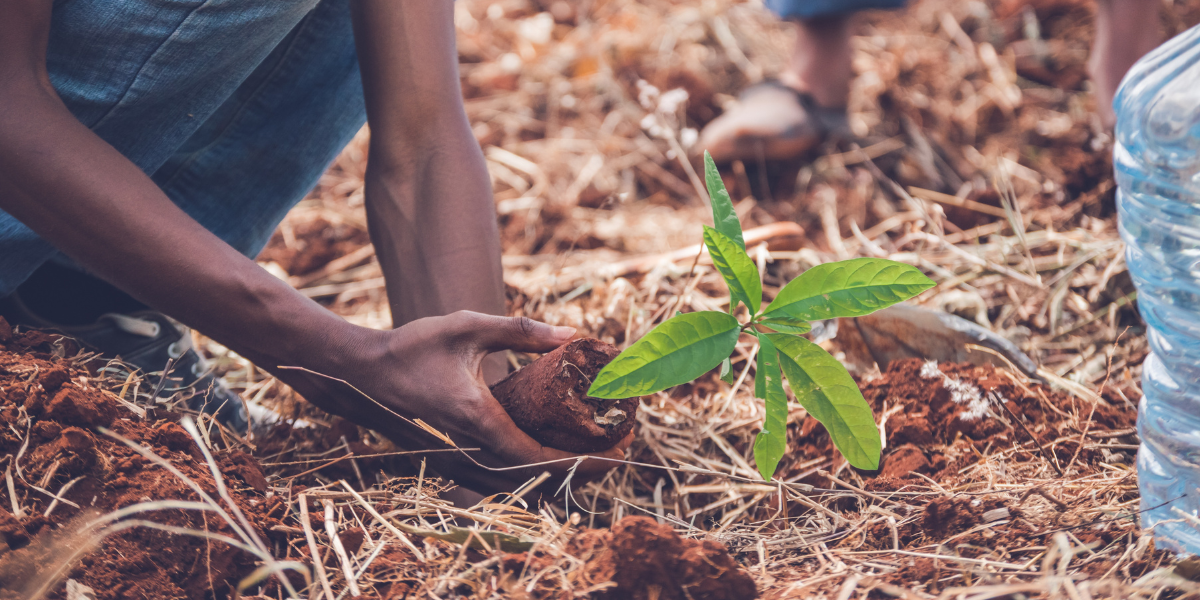
PROJECT FUNDED BY: STRENGTHENING MAHARASHTRA'S AGRIBUSINESS NETWORKS (MAGNET) FOR SUSTAINABLE FARMING
PROJECT FUND: NABARD
PROJECT DURATION: 2023-29
In the picturesque landscapes of Nandurbar, Maharashtra, where the Satpuda mountain ranges meet lush forests and waterfalls, a remarkable initiative is underway. The Integrated Tribal Development Fund (TDF) is paving the way for a brighter future for tribal farmers and their families. With the project in its first year and five more to go, it holds the promise of transforming lives and aligning with Sustainable Development Goals (SDGs).
SDG Alignment:
This project resonates strongly with several SDGs. First and foremost, it contributes to SDG 1: No Poverty by aiming to lift the poorest of the poor from their current circumstances. By creating sustainable livelihoods, it offers a pathway out of poverty.
SDG 2: Zero Hunger is another goal within reach. The initiative focuses on food and nutrition security, ensuring that tribal families have access to nutritious meals. By promoting sustainable farming practices, it aims to enhance crop productivity and improve the health of women and children.
SDG 5: Gender Equality is a crucial aspect of this project. It seeks to empower women by reducing their drudgeries, recognizing their roles in decision-making, and promoting women’s leadership in the community.
Project Objectives:
Establish one-acre orchards (WADI) for tribal farmers.
Promote sustainable agriculture practices, reducing production costs and increasing yields.
Ensure food and nutritional security for tribal families.
Reduce the workload of women farmers.
Lift 15% of the poorest families out of poverty.
The WADI Approach:
The heart of this project lies in the WADI model, which means ‘orchard’ in Marathi and Gujarati. Tribal farmers, primarily with small landholdings, are supported in developing one-acre orchards. While fruit-bearing trees take time to yield, farmers are assisted in cultivating short-duration crops in the interim. This approach not only strengthens tribal livelihoods but also boosts food and nutritional security.
Climate Resilience and Environmental Benefits:
One of the remarkable features of the WADI project is its climate resilience. Unlike seasonal crops, orchard trees can withstand short-term adverse weather conditions. Organic practices adopted here improve soil quality, reduce runoff, and promote groundwater recharge. Furthermore, pruning of fruit trees provides a sustainable supply of fuel and fodder, reducing pressure on forests and allowing regeneration. In addition, the project contributes to climate change mitigation by storing carbon in trees and soil.
With its holistic approach to sustainable development, the TDF project in Nandurbar promises to be a beacon of hope for tribal farmers. As it enters its second year, it moves closer to its goal of uplifting marginalized communities, promoting gender equality, and aligning with the SDGs, creating a brighter, more prosperous future for all involved.
This project holds great promise for the tribal community in Nandurbar. By establishing orchards and implementing sustainable agriculture practices, it not only enhances farmers’ incomes but also ensures food and nutritional security for families. Additionally, it reduces the drudgeries faced by women in farming activities. Through increased crop productivity, improved soil health, and enhanced market access, the project uplifts the overall well-being of the community. It’s a holistic approach that not only addresses economic aspects but also social empowerment, particularly the recognition of women’s roles in decision-making processes. Overall, the project strives to break the cycle of poverty and improve the quality of life for tribal families in the region.

